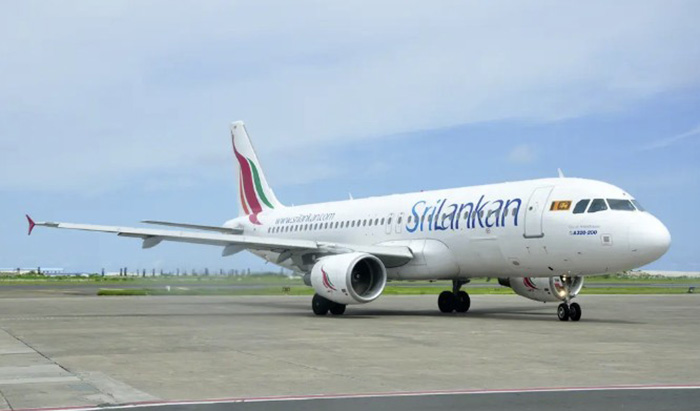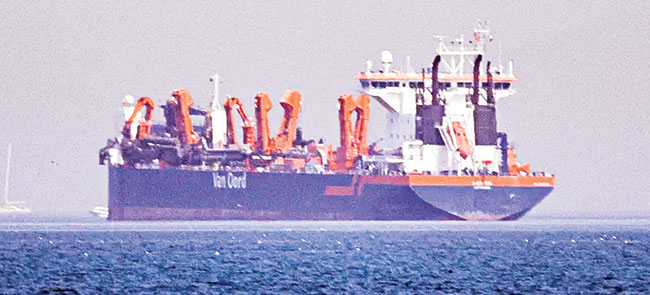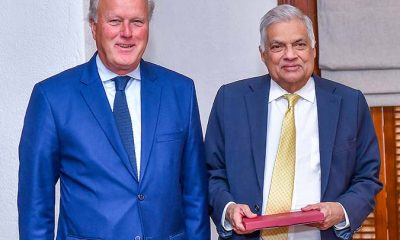Business
LOLC Al-Falaah wins multiple golds at the slibfi-awards 2022

LOLC Al-Falaah was felicitated with two prominent awards within the Islamic Banking and Finance services sector in Sri Lanka, at the 11th edition of the SLIBFI (Sri Lanka Islamic Banking and Financial Institution) awards. Securing the GOLD award for ‘Leasing Company of the Year’ and GOLD award for ‘Window of the Year’ were significant, as LOLC Al-Falaah have won these awards consecutively over the years. Whilst receiving the Bronze award for ‘Entity of the Year’, an innovative product option ‘Wakalah Speed-Draft’ launched earlier in the year secured the Bronze award for ‘Product of the Year’. With the newest additions, Al-Falaah reaffirms the trust placed in them persistently, as the ‘Most awarded Alternate Financial services provider in Sri Lanka.
LOLC AL-Falaah is the alternate financial services brand of LOLC Holdings PLC, Sri Lanka’s largest and most diversified multinational conglomerate with operations in 22 countries in Asia and Africa. The brand dominates the alternate financial services segment in Sri Lanka, as a Strategic Business Unit (SBU) of LOLC Finance PLC (LOFC), Sri Lanka’s largest Non-Banking Financial Institution (NBFI). LOLC Al-Falaah, has a strong brand identity and brand acceptance with a history of over 15 years within the industry. Al-Falaah performed strongly in 2021/22 to record an impressive Finance portfolio growth of over 51% reaching Rs. 23.44 Bn from its previous year’s book of Rs. 15.47 Bn while sustaining a Deposits portfolio of Rs. 12.52 Bn. Committed to safeguarding investors, LOLC Al-Falaah has distributed Profits to Depositors amounting to Rs. 735 Mn, and secured a 36% increase in Profit before Tax, demonstrating a strong stature despite the volatile economic conditions during the year.
Commenting on the remarkable achievement Director/ Chief Executive Officer of LOLC Finance PLC, Krishan Thilakaratne said; “these constant awards we receive reinstates that LOLC Al-Falaah is ahead of the curve in terms of market leadership, innovation and trust, under the umbrella of the largest NBFI in the country, LOLC Finance. We compete even with other banks because of its sound portfolio quality which is 100% asset backed. Our non-performing loans too are the lowest in the industry which reflects the credit quality and professional management of our finances”.
Also commenting, Mr. Shiraz Refai, Head of Alternate Financial Services, LOLC Finance said, “Our commitment to ensuring our Customers financial needs are tailor-made to modern-day complex requirements, together with emphasis on determination and attention-to-detail, customer care service offered by LOLC Finance staff are the key reasons that we were honoured by these multiple awards. On behalf of the Team, we’re honoured to receive ‘Leasing Company of the Year–Gold’ and ‘Window of the Year-Gold’ for the third and second consecutive years respectively and recognition for both Entity of the Year and Product of the Year’. I believe that our performance and recognition roots from the trust and confidence that our Customers have placed in us, together with the untiring efforts of our professional staff members.”
The awarding ceremony was concluded on the 14th of October 2022 at Ramada Hotel, Colombo. The awarding body, UTO EduConsult (UTO), an organization with a long-reputed history, has initiated this awarding event to acknowledge and to recognise the efforts made by the Islamic Banking and Financial sector in Sri Lanka. In awarding the titles, the applicants profiles have been reviewed and accessed based on their audited financial data pertaining to the year under consideration, by a reputed panel of judges.
Business
SriLankan Airlines Update on Middle East Operations

03 March 2026; Colombo – As airspace in certain parts of the Middle East continues to remain closed due to the ongoing conflict, the following SriLankan Airlines flights scheduled to operate today have been cancelled:
Flight Route
UL 225 Colombo–Dubai
UL 226 Dubai–Colombo
UL 231 Colombo–Dubai
UL 232 Dubai–Colombo
UL 229 Colombo–Kuwait
UL 230 Kuwait–Colombo
UL 217 Colombo–Doha
UL 218 Doha–Colombo
UL 253 Colombo–Dammam
UL 254 Dammam–Colombo
UL 265 Colombo–Riyadh
UL 266 Riyadh–Colombo
We sincerely appreciate our passengers’ understanding and patience as these cancellations are implemented in the interest of their safety and wellbeing.
For more information, please contact: 1979 (within Sri Lanka); +94 11 777 1979 (international); WhatsApp +94 74 444 1979 (chat only); your travel agent; or visit www.srilankan.com
Business
Middle East escalation sends oil soaring; Sri Lanka faces price shock despite assurances on supply

Global oil prices surged sharply yesterday following coordinated US and Israel-backed strikes on Iran, and Tehran’s retaliatory attacks targeting US interests in the region, alongside escalating hostilities involving Hezbollah in Lebanon. The renewed instability in the Middle East – the artery of the world’s energy supply – has sent tremors through financial markets and triggered fresh anxiety in oil-importing nations such as Sri Lanka.
Brent crude climbed steeply in early Asian trading, with traders pricing in the risk of supply disruptions through critical maritime chokepoints, particularly the Strait of Hormuz, through which nearly a fifth of global oil passes. Market analysts say the spike reflects not only immediate supply fears but also the potential for prolonged geopolitical tension that could keep prices elevated for months.
Meanwhile, Asian equities reacted nervously to the unfolding crisis. Major indices across the region retreated as investors fled risk assets, concerned that higher energy costs could dampen growth and reignite inflationary pressures.
Asian oil and gas stocks – the only winner in Asian equity markets – rallied strongly, reflecting expectations of higher revenues amid rising crude prices. This divergence of falling broader markets alongside rising oil shares signals investor anticipation of higher inflation and weaker consumer demand in emerging markets like Sri Lanka.
Meanwhile, reports of increased Chinese crude purchases are further compounding market anxiety. If Beijing accelerates buying to secure strategic reserves in anticipation of supply constraints, global prices could climb even further because China’s procurement strategy has great influence on the world oil price.
“Should Chinese demand rise while Middle Eastern exports face disruption, the supply-demand imbalance could tighten considerably, amplifying volatility in global energy markets”, say global energy market analysts.
In Sri Lanka, long queues have begun forming at fuel stations amid fears of shortages and higher pump prices once new shipments arrive. The government has sought to calm public nerves, stating that sufficient stocks are available for approximately one month and that fresh supplies are being sourced from India and Singapore.
Deputy Minister of Tourism, Dr. Ruwan Ranasinghe said that as Sri Lanka imports refined products primarily from India and trading hubs such as Singapore, direct disruptions to Middle Eastern sea routes would not immediately interrupt supply chains. He maintained that there is no cause for panic buying.
In an unusual show of political maturity, Prasad Siriwardena, an Opposition MP from the Samagi Jana Balawegaya (SJB) urged the public to remain calm and refrain from hoarding, warning that artificial shortages could emerge if panic-driven stockpiling spreads.
However, former minister Wimal Weerawansa criticised the government for failing to build a strategic reserve of at least three months, arguing that Sri Lanka’s total dependence on imported fuel leaves it dangerously exposed to prolonged geopolitical shocks.
Weerawansa contended that the government failed to anticipate the likelihood of US-Iran tensions escalating into direct confrontation and should have proactively guided petroleum authorities to secure adequate reserves in advance.
Meanwhile, an independent analyst told this reporter on the condition of anonymity that the global economic spillover could have wide-ranging consequences on Sri Lanka, outlining five factors.
Energy costs that feed into transportation, manufacturing and food prices
Tighter monetary policy risks as the Central Bank may hesitate to cut rates if inflation resurges
Slower growth as consumers and businesses reduce spending when energy costs rise
A widening trade deficit as Sri Lanka would face increased import bills
Pressure on the Rupee as increased dollar outflows for fuel imports could strain foreign exchange reserves
In conclusion, he said, “One can only hope that diplomacy prevails before oil’s surge turns into a sustained economic storm for the global economy.”
by Sanath Nanayakkare
Business
How ‘distant wars can quickly arrive at the domestic pump’

The harsh economic realities behind soothing words
Sri Lanka’s fragile economic recovery faces a renewed external threat as escalating conflict involving Iran sends global oil prices sharply higher, raising concerns over inflation, foreign reserves and fiscal stability.
While authorities insist there is no immediate fuel shortage, economists warn that prolonged instability in the Middle East could trigger a familiar and painful chain reaction in an import-dependent economy still recovering from its worst financial crisis in decades.
The state-run Ceylon Petroleum Corporation (CPC) confirmed that the country currently holds sufficient petrol and diesel stocks for more than a month.
Energy Minister Eng. Kumara Jayakody assured that scheduled shipments remain unaffected and urged the public to refrain from panic buying, warning that artificial demand could disrupt smooth distribution.
But behind those reassurances lies a harsher economic reality: Sri Lanka does not need a physical fuel shortage to suffer — a sustained spike in global crude prices alone could be enough.
Market jitters intensified amid fears that any escalation could threaten shipping through the Strait of Hormuz, the narrow maritime corridor through which a significant share of the world’s oil supply passes daily. Even speculation of disruption has historically been sufficient to push prices sharply upward.
Sri Lanka sources refined fuel from multiple markets, including India and Southeast Asia. However, global benchmark prices ultimately determine import costs. If crude prices remain elevated, the country’s monthly fuel import bill could surge — placing fresh strain on dollar reserves.
Higher oil prices would ripple across the entire economy. Transport, electricity generation, manufacturing, agriculture and food distribution are all energy-sensitive sectors. A sustained price increase could reverse recent gains in inflation control.
The Central Bank of Sri Lanka has worked to stabilise inflation and the rupee through tight monetary discipline. Analysts caution that a renewed oil shock could complicate this effort, widening the trade deficit and pressuring the exchange rate.
“Sri Lanka is structurally vulnerable to energy price shocks. Even without direct supply disruption, higher global prices immediately translate into macroeconomic stress, a senior economic analyst said.
The government is currently operating under strict fiscal consolidation targets as part of its recovery programme. A rising fuel bill could expand subsidy pressures or force politically sensitive fuel price adjustments.
Any increase in administered fuel prices would inevitably feed into cost-of-living pressures, testing public tolerance amid ongoing austerity.
Beyond oil markets, instability in the Middle East carries another risk: remittances. The Gulf region remains a key source of foreign employment for Sri Lankans and a crucial inflow of foreign exchange.
Any economic slowdown or labour disruption in the region could dampen remittance flows, reducing one of the country’s most stable dollar lifelines.
An energy expert said for Sri Lanka, the Iran conflict is not merely a distant geopolitical event. It is a potential economic stress test at a moment when stability remains hard-won.
“Whether this turns into a temporary price spike or a prolonged oil shock will determine how severely it tests the country’s recovery trajectory. For now, policymakers are watching global markets closely — aware that in today’s interconnected economy, distant wars can quickly arrive at the domestic pump.”
By Ifham Nizam
-

 Opinion5 days ago
Opinion5 days agoJamming and re-setting the world: What is the role of Donald Trump?
-

 Features5 days ago
Features5 days agoAn innocent bystander or a passive onlooker?
-

 Features2 days ago
Features2 days agoBrilliant Navy officer no more
-

 Features6 days ago
Features6 days agoRatmalana Airport: The Truth, The Whole Truth, And Nothing But The Truth
-

 Business7 days ago
Business7 days agoDialog partners with Xiaomi to introduce Redmi Note 15 5G Series in Sri Lanka
-

 Features7 days ago
Features7 days agoBuilding on Sand: The Indian market trap
-

 Opinion7 days ago
Opinion7 days agoFuture must be won
-

 Opinion2 days ago
Opinion2 days agoSri Lanka – world’s worst facilities for cricket fans
























